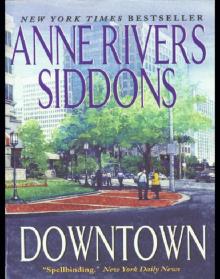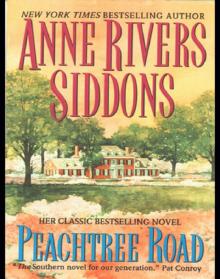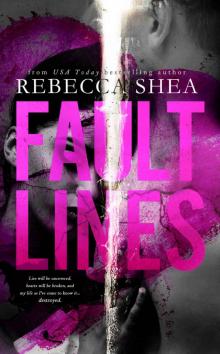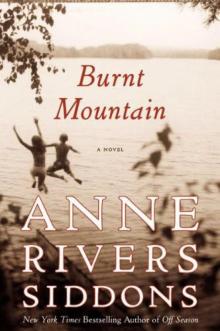- Home
- Anne Rivers Siddons
Hill Towns Page 3
Hill Towns Read online
Page 3
It was an unusual arrangement, but Trinity was used to unusual arrangements when it came to me. Exceptions for Catherine Compton were made with regularity. Old Bishop Compton’s largesse, all those years before, had been great indeed. And I truly loved the gentle, childless old couple who had plucked me off a stone doorstep all those years ago, and I knew they loved me in return. They had become the grandparents the Comptons might have been to me, if I could have made myself leave the Mountain. But even at thirteen, the fear of the outside world that was born by Tolliver’s Creek was too vivid, too real for that. I had made one visit to their home just after Papaw and Mamaw died, and my anxiety was so overwhelming that I trembled and vomited for three days, only stopping when I passed once more under the arch into the Domain.
It was then the suggestion was first made, by Grandmother Compton, that perhaps a discreet stint of psychiatric therapy would not be amiss. But by the time she made it I was radiant and restored in my relief, and so happy to be back at Trinity that I fairly shimmered with it.
“It’s not you,” I said into my grandmother’s lilac-smelling neck. “You know I love you and Grandpa. It’s just that…I have to be up here. I have to be.”
“Then, my dear Cat, you shall be,” she said, and hugged me hard, and went into the Pierces’ house with Grandpa Compton to talk with Dr. and Mrs. Pierce about the matter. I did not realize until she had driven away again that the tears on my face had been hers and not my own.
After that, I saw my Compton grandparents regularly, and always on celebratory occasions such as birthdays, graduations, and the bestowing of academic honors. But always it was at Trinity. After I enrolled and moved into the freshmen women’s hall, upon graduating from Montview Day, I left the Mountain only for infrequent, reluctant shopping and academic field trips to nearby Chattanooga or Knoxville or Nashville and very rarely Atlanta, and I left under the serene kiss of a tranquilizer administered by the college physician, an old friend of the Pierces, with no questions asked. Even then, anxiety curled like a snake in the pit of my stomach, dormant but sentient. By the time I met Joe I had not been off the Mountain in over a year. I was planning, after graduation, to take a position at Trinity as a graduate assistant in the Art Department, where I was taking my degree in Art History. It was already arranged; fortunately, I was a good student and sought after as a teaching assistant. Someone would probably have had to take me anyway if I had not been. It neither escaped me nor pleased me that I was, by that time, a campus icon.
It was a beautiful little wedding, if I do say so, with a spare sweetness to it. The few contemporaries of mine who attended often speak of it. My senior-year roommate, Francesca Leatherberry from Louisville, who is a vice president of a large Richmond bank now and comes back often to the Mountain, says it couldn’t have happened anywhere but in the Domain, nor with anyone but Joe and me.
“So medieval, somehow,” she has said more than once. “All that gray stone and green light, and you in the wildflowers like Juliet, and Joe in his gorgeous hood. And only the candles, and the Purcell on the recorder, and of course you and he look exactly like effigies on some old tomb in Westminster Abbey, one that goes back to the Crusades. Are you sure you aren’t brother and sister, separated at birth?”
“God, I hope not,” Joe said the first time she said it. “If we are we’re surely damned, the way we’ve been carrying on. Our issue will be albino idiots with cloven feet.”
I have thought often of what she said, and what he replied. I know he has, too.
Even his friend Corinne Parker, then a cynical, foul-mouthed, and thoroughly engaging graduate assistant in the Psych Department and now a successful psychologist with a practice in Montview drawn largely from Trinitarians, was touched by the ceremony.
“It almost made me wish I was straight,” she said not long after the wedding, at the first party we gave in our tiny rented guest cottage behind a big stone house in the village. “The sheer innocence of it could have choked a mastodon. I yearned for white eyelet for a week afterward.”
Corinne was a lesbian and lived openly with another gay woman in a garage apartment out near the Inn. Nobody particularly cared. One’s sexuality has never been of much concern at Trinity; sensuality is as much an element up here as the thin pure air and the cold sweet spring water. How could it not be, with all this closeness, this raptness, this sheer youngness? Same-sex relationships have always flourished here, usually as those all-consuming first friendships that seem peculiar to small colleges, but lines of demarcation blur on the Mountain. The church had an unofficial stance against homosexuality in my time at Trinity, of course, but could hardly afford to make a thing about it, given the ardency of the friendships born in seminary, and generally didn’t bother anyway. Far better to save the salvos for the real sins of venality, materialism, and general worldly tackiness.
“You could have white eyelet if you wanted it,” Joe said, ruffling her short copper thatch. “Who said it’s strictly for girls? Ol’ Cat here is built like a fourteen-year-old basketball center.”
“I’d look like a fireplug with a tea napkin slung over it,” Corinne snarled. “Cat looked like Ophelia on her best day. Nope. Amy and I are going to tie the knot in black leather on Harleys, with Three Dog Night for a processional. Y’all can come if you’ll behave.”
Amy left the garage apartment and the Mountain the following year, but Corinne has stayed on, good therapist and good friend that she is. She has another friend now, but when she comes to our house it is usually alone. She said to me once, a few years after Lacey was born, “I know it isn’t any of my business, Cat, but if you ever feel like talking to somebody about this agoraphobic stuff, I think I could help you. I’ve had some real successes with it….”
I hugged her. “Rinnie, I’m not agoraphobic. I’m just exactly where I want to be. But thanks anyway,” and she smiled and hugged me back. She seldom mentioned it again, but sometimes, at parties at our house, she looked at me thoughtfully, and I knew what she was thinking.
She and ’Cesca Leatherberry were the only two Trinity students at our wedding. Dr. and Mrs. Pierce were there, of course, and the professor whose assistant I would become in the fall, and the head of Joe’s department and his wife, and two or three other faculty couples to whom I had grown close in my years with the Pierces. Joe’s mother was bedridden with emphysema and his father had been dead for some years, but his older brother and sister, Caleb and Sarah, came, taciturn and solid and swarthy, the living legacy of the dead Cajun seaman, but without, apparently, his dark fire. I liked them, but we had little to say to each other, and I think they found Trinity and the Mountain somehow effete, a bit rarefied and precious, after the rocky harshness of their Vermont farm. They stayed overnight at the inn and left early the next day, with their invitations to come and stay with them in Vermont ringing in my ears and my assurances that I couldn’t wait ringing in theirs.
Somehow I knew I’d never go. I don’t think Joe did, though; not then.
“Give them a little time,” he said, watching their rental car set off down the road toward the airport in Chattanooga. “The Mountain would be pretty esoteric doing to most Vermonters. ‘Sheep May Safely Graze’ is a Four-H slogan to them. Towers belong on TV stations. They’ve never even met a Southerner, and the first one they do meet is marrying their little brother. You’ll get to know them better when we go up for you to meet Ma. On their own turf they’ll be a lot easier with you.”
“I wish she could have been here,” I said, the old familiar fear starting up in the pit of my stomach. We had not spoken before of leaving the Mountain to go and visit his mother. We had not spoken of leaving it at all.
“I wish your parents could have too,” he said softly.
“Yes,” I said, my eyes stinging suddenly. I saw them again as they were in the picture I kept on my dresser, only slightly older than I was now, smiling down at me. “This wedding was for my mother, as well as for me. Nobody was laughing at this wedding.”
/>
He pulled me to him and held me against him, my face feeling the warmth of his body through the T-shirt he’d pulled on hastily to come and see his brother and sister off. Only an hour before my cheek had rested there against his bare skin. I closed my eyes and burrowed my face fiercely into his chest, to scourge away the stinging tears, to feel the sheer heat and solidity of him, miraculously mine now.
“Come on,” he said. “Let’s go home. Bed’s still warm.”
And we did.
We had made love for the first time the night before. It was the first time ever for me: remarkable, Joe said, in that age of mandatory egalitarian sexuality among the young. Everywhere in those days, even on the Mountain or perhaps especially there, love was being made, in car seats and dorm rooms and thickets and behind darkened buildings. On the Steep, you had to step carefully to avoid treading on lovers. Sex hung in the air as thickly as smoke.
“I can see why you never have, with your parents and all,” he said, the first time we talked about it, which was not very long after we met. From the very first, it was hard for us to keep our hands off each other, and we both sensed that some sort of policy about sex had to be arrived at.
“What do you mean?” I replied. “They loved it. They did it all the time. I heard them, even if I never saw them. They sounded like a couple of wildcats. Practically everybody on the Mountain knew about them; they were famous.”
“I mean the way they died,” he said hesitantly. “It would scare anybody.” Joe was still awed and reverential about the Faulknerian manner of my parents’ demise.
“I’m not scared,” I said and believed it. “I don’t even think about it anymore. The reason I don’t do it is because I never met anybody I wanted to do it with until you. And can you imagine trying to screw in the Pierces’ house? We’d turn into pillars of salt the second the tire hit the road.”
He laughed and pulled me close, and we resumed the hypnotic, infinitely slow touching of each other’s faces and bodies that served us, then, as the prelude to what we both knew would come soon. How could I be afraid after those afternoons and nights spent learning his long, knobbed body by heart and fingertip, inch by inch? There was no part of either of us unknown to, untouched by, the other. When we finally broke apart I would be limp and stunned with wanting him, almost unable to stand. And he would be mute and sweating.
“Can you get cancer from stored-up sperm?” he would say, grimacing.
But we did not consummate it. We agreed. It would be even sweeter for the waiting. And it was the right thing for us.
It was his decision. “Somehow, jumping your bones before the ceremony would be like screwing Trinity’s mascot or something,” he said. “Until we get married you belong to Trinity. But oh, baby, watch out afterward. Afterward, you’re mine.”
And so we gasped and burned and fumbled along until our wedding day, and the instant we went upstairs to our room in the inn, to which the Pierces had treated us, we slammed and locked our door, and looked at each other, and then skinned out of our wedding clothes and ran into each other’s arms, and did there on the rag rug that had doubtless been hooked in another century by a blameless bishop’s wife the thing we had been waiting for. We did not even make it to the bed. After the first time, we did it twice more before we even got up off the floor. It was well past midnight before we finally lay together in the first of the beds we would share throughout our life. Since then I have slept alone very few times.
I loved it. I always have. Making love with Joe is one of the very few totally absolute things I know; it is pure sensation and transport, unleavened by any external element. At the beginning of our marriage it was a kind of warm red earthquake, shaking me until my senses literally left me. Later it became sweeter, longer, deeper, and even later a slow, sliding roller-coaster ride whose course I knew as I knew my way from my bed to my bathroom at night in the dark, familiar in every inch and degree but no less transcendent in the last white burst than it had been the first time. I knew it was so for Joe, too. I knew by the moves he made, the words he whispered, the sounds he made at the climax, the way he laughed aloud, a whoop like a boy’s, after it was done.
For myself, I found I could make no sound. Not that first time, and never since, could I so much as whisper, whimper, cry out, laugh. I could feel the sound welling up in me as he filled and rocked me, feel the long, ululating cry of abandon and completion spilling from my lungs and climbing my throat; I could even feel my mouth open with it, and my lips draw back and contort with the long cry of love, and the tendons in my throat strain, but I could force no sound out.
At first it puzzled Joe, and then alarmed him slightly, and finally became a challenge, a matter of honor, a slight. There were times, until we both made peace with my inability to make a sound during love, that he went at me so fiercely I thought he was trying literally to pound a sound from me, ream from me an affirmation. Sometimes afterward, he would fall silent and turn away from me, and I would feel tears of something like guilt in my eyes, and I would roll over on him and tease him with my hands and mouth until we could do it again, hoping that this time the dam in my throat would burst or he would forgive me my muteness. The latter happened always, but the former never did. I was as unable to shout my love as a stone.
We finally made a small joke of it and were able to move past.
“Why does it matter? It’s just noise,” I would say. “You should be able to tell by now that I sort of like it.”
And he would laugh—would have to, because there was no mistaking how I felt about the act of love with my husband. A blind man could have read it from my thrashing body, from the great, silent rictus of passion that arched my neck and blurred my face. “The silent death,” Joe came to call it.
“It’s just”—I laughed one summer afternoon as we lay on the grass in the shady lee of our garden wall—“that I want to be able to hear you coming.”
Neither of us said anything for a long moment. I knew I had gone to the literal heart of my silence. In that last, lost moment I needed more than anything on earth to be able to hear whatever was coming. So I would not, like my parents, die of my love.
“Exactly,” Joe said quietly. “Exactly, my poor Cat.”
After that he seemed content with my silence. In an odd way it seemed even to please him, to become erotic in and of itself. After that day we did things we had not done before; he moved in new ways, cried out new things. I was pleased and relieved but in some obscure way disturbed, too. It was as though he read in that strange, sad little inability of mine confirmation of that first seductive Gothic strangeness that had drawn him to me. I felt he was fucking a woman in an Appalachian ballad, the Cat Compton of the silly folk song, instead of the living, breathing, particular woman who was his wife. But I did not mention this to him. By then I had made my Eden and drawn him into it with me. I was not about to poke at its stones and mortar.
For all my life with him, I have wondered about Joe’s fascination with the South, particularly with the dark and secret veins of the bizarre that run everywhere through this old tapestry. I have come to no firm conclusion, even all these years later. But I think it had its genesis in that stark, rock-spined farm outside St. Albans, in Franklin County, in the northwest corner of Vermont.
Even in the light, Joe said, there was a kind of darkness on the land, not the rich, fecund green darkness of the Mountain and the South in general, but a shallow, flinty murkiness that did not nourish. The farm was not near a town of any size; his mother and her cousins and children tended their few placid New England cattle and raised some stunted New England potatoes wild miles from the cultivated coasts of Massachusetts, New Hampshire, and Maine. It was not much of a farm ever, and his father’s early defection and death, added to his mother’s chronic illness and the advanced age of the two cousins, bled it into near poverty. Joe worked the farm before and after school and in the summers. There was enough to eat and hand-me-down clothes from Caleb to clothe, if badly, his w
eedy frame, but there was nothing in the long silences of the house and the rasping of his mother’s sick lungs and the dying crossroads villages to feed a soul. Joe worked in silence and studied with furious, focused concentration and remembered that the only music and laughter and dancing he had ever known had come from the South, with his dimly remembered father. His grades were awesome, despite his schedule of farmwork. His SATs struck his teachers into silence. A young guidance counselor, herself an outlander, had the wit to help him apply early to several Ivy League schools, and by the time he was a junior he had received acceptances from all of them.
He chose Dartmouth, partly because it was essentially a village, and therefore within his limited ken, and partly because he had seen a cloyingly romantic movie long before about Winter Carnival that had enchanted him. When he said goodbye to his mother and Caleb and Sarah, everyone understood that it would be a long goodbye.
His first year at Dartmouth he had drifted into a southern literature course and found there such nourishing richness and romantic grotesquerie and indolent beauty that his heart, suckled on granite and silence, flowered like wild honeysuckle, and he was lost. He brought his new degree and his hunger for dark Faulknerian loam south, found the Mountain, and began to sink grateful roots almost before he cut off the motor of his old Volvo station wagon. By the time he met me, he was a perfect medium for such specialized cultivars as we produce here. He would have fallen in love with me, I think, if I had been built like Brünhilde and had a mustache and the mind of an Easter chick. The extravagant personae of my parents and Cash grandparents, plus the whole seductive and beautiful Mountain-church-philosopher business, would have seen to that. The fact that I was bright enough, funny, vulnerable, and matched him almost inch for inch in height, slenderness, and exaggerated Victorian-valentine purity of feature was merely a plus.

 Colony
Colony Nora, Nora
Nora, Nora House Next Door
House Next Door Homeplace
Homeplace Downtown
Downtown Peachtree Road
Peachtree Road Sweetwater Creek
Sweetwater Creek Fault Lines
Fault Lines Low Country
Low Country The Girls of August
The Girls of August Burnt Mountain
Burnt Mountain Islands
Islands